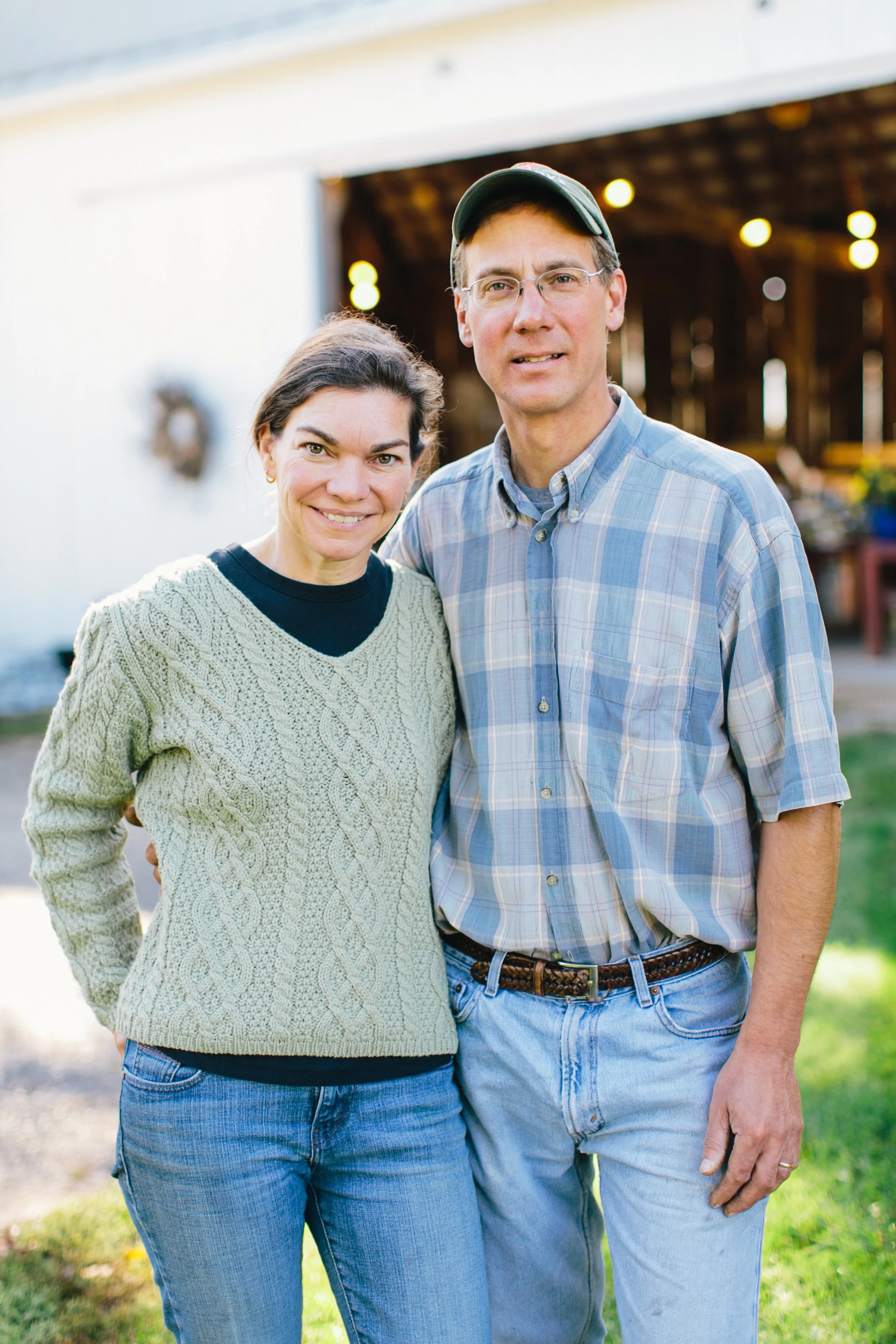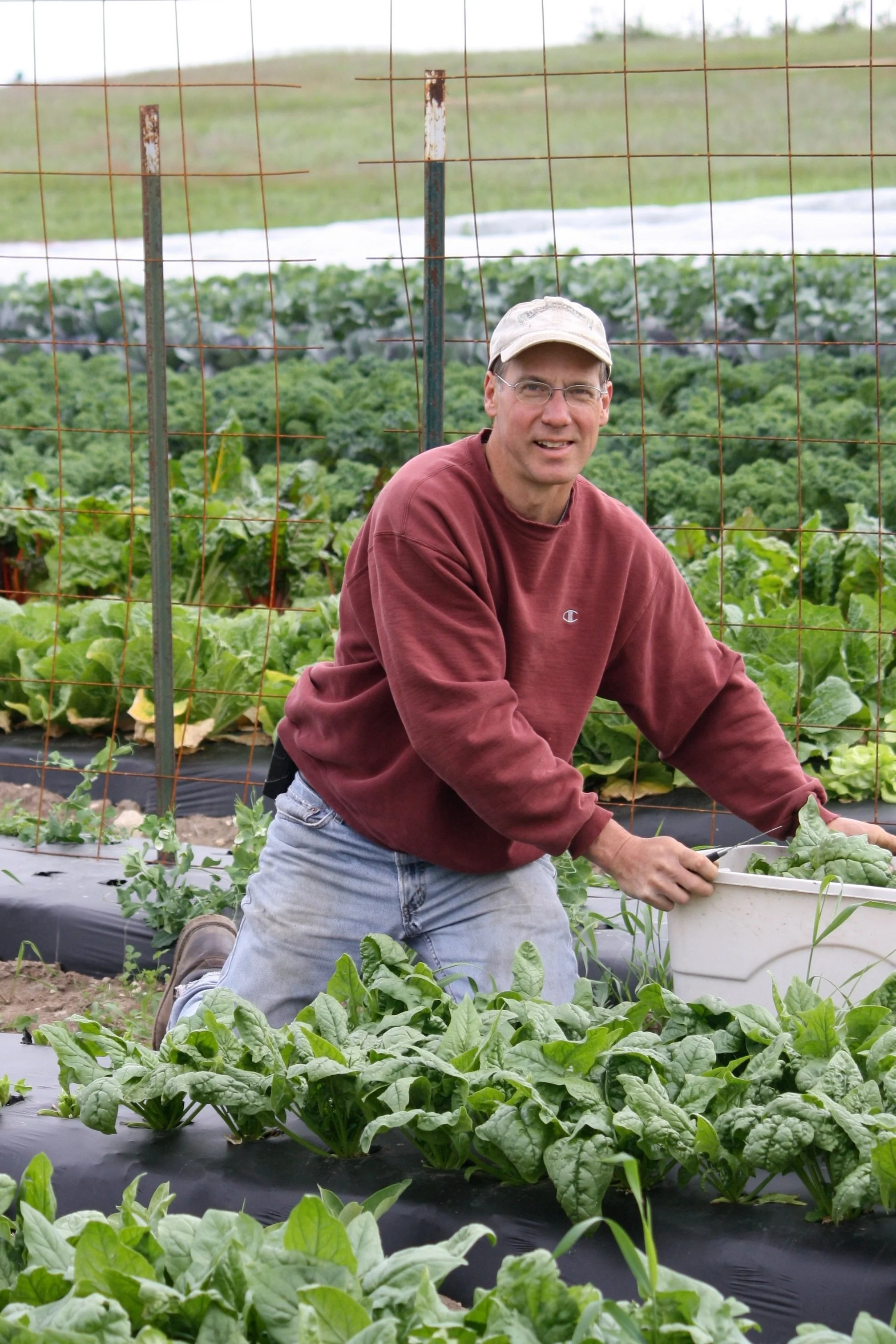Good for the Water and Good for the Land: Growing Organic Produce Helped This Fifth-Generation Farm Thrive
The interior of the Coveyou Scenic Farm Market. Courtesy of David Coveyou.
Located in Petoskey, Michigan, just three miles in from Lake Michigan, Coveyou Scenic Farm Market grows a full line of organic vegetables, says fifth-generation farmer David Coveyou.
Once harvested, the vegetables are sold at the on-site market alongside fruits, jams, sauces, baked goods, eggs, meat, and cheeses from more than 120 Michigan vendors. The farm also distributes produce to local schools, restaurants, retail stores, and other community institutions.
“It's wonderful food,” says Coveyou, who explains that the vegetables for sale in the market are often harvested that same day. “When people start realizing that we can eat and enjoy so many things that are made in northern Michigan, they kind of become passionate about eating local. It's hard to go back to off-the-shelf national brands when you've tasted something that's more like this mom-and-pop artisan food.”
The 330-acre farm and market, which overlooks inland Walloon Lake, focuses on environmentally sustainable farming practices using solar power, geothermal cooling, collected rainwater, underground drip irrigation, and natural fertilizers, says Coveyou.
“I'm growing a lot closer to the way my great grandfather grew before the conventional trends of the last generation, where everything is synthetic,” he says. “It allows us to grow better quality produce—healthier produce—but also to preserve and conserve our land. Everything we're using is found in nature.”
David Coveyou and his wife, Kathy. Courtesy of David Coveyou.
Together, Coveyou and his wife and four children, along with a team of 12 employees, grow their produce using Michigan-made Dairy Doo sustainable fertilizers. Compared to synthetic fertilizers, which are created using an industrial process that relies heavily on natural gases, these organic fertilizers are far healthier for the planet.
Comprised of naturally occurring ingredients like manure, compost, rocks, shells, and bones, organic fertilizers help safeguard the soil and nearby watersheds by reducing excess nutrient runoff—a common problem with synthetic fertilizers. Upon application, organic fertilizers are mixed with the dirt, helping to improve soil quality over time. Synthetic fertilizers, on the other hand, are mixed with water and sprayed onto crops, providing a short-term burst of nutrients like nitrogen and phosphorus.
“All these synthetic, water-soluble fertilizers are actually leeching into our water systems,” says Coveyou. “When they dissolve in water, whether it's from rain or your sprinklers, they're getting into our sandy soils, into the lakes, and going further down into the well systems.”
In the United States, the agriculture industry applies an estimated four million tons of phosphorus and 12 million tons of nitrogen to crops each year, making agriculture the largest nationwide contributor to harmful nutrient runoff into our waterways. Once these elements are introduced to the watershed, they pollute drinking water—particularly for the more than 13 million U.S. households that rely on well water—and contribute to harmful algal blooms that produce toxins and threaten the health of humans and wildlife.
These elements are also harmful when used as lawn fertilizers for residential properties, says Coveyou, further contributing to poor soil and water quality in areas that are already oversaturated. Soil testing, which is often provided for free by universities and nonprofit organizations, can offer insight into the existing nutrient content of the soil to determine if lawn treatments are necessary prior to application.
“Once [a synthetic fertilizer] dissolves in the water and gets into the water table, it does your lawn no good,” says Coveyou. “If your lawn guy has to come back more than three times a year, you’re basically washing a ton of it into the water stream.”
Although investing in a native plant lawn is the most environmentally friendly alternative to traditional grass lawns, homeowners that aren’t ready to take that plunge should explore organic fertilizers as a more responsible method of fertilizing their lawns.
“There are very good lawn services that use organic fertilizers,” Coveyou suggests. “It doesn’t matter where you are, but especially if you have a lakefront home. It’s the low hanging fruit of what we can do in our community to make it better.”
In addition to using sustainable fertilizers, Coveyou Scenic Farm Market strives for energy efficiency and water conservation. Twice recognized by the Michigan Governor’s Energy Excellence Award Committee, the farm is powered via a solar array and uses geothermal heating and cooling.
Coveyou also collects rainwater from the roof of a 5,000-square-foot greenhouse, which is stored in a 13,000-gallon tank and used for watering crops. Each year, Coveyou and his team install more than 40 miles of ground-level drip irrigation tubing that pull from both the rainwater and a spring-fed pond on the property. Coveyou says this water is warmer and higher in mineral content than water sourced from deeper in the watershed, both qualities that help crops thrive.
Furthermore, this method helps conserve water, a resource that is often overburdened by the agricultural industry, which accounts for an estimated 80% of annual U.S. water consumption.
“Water gets to our produce in the most efficient way,” Coveyou says. “Everything is in the ground to conserve water.”
David Coveyou harvesting plants. Courtesy of David Coveyou.
As Coveyou Scenic Farm Market celebrates its 150th year in 2024, Coveyou is reflecting on the fact that, just 30 years ago, the future of his family’s 330-acre property was uncertain.
“When I was growing up, our farm was all cereal grains—oats, wheat, barley, buckwheat—that we’d sell to all these other farmers in the area,” he recalls. “All those other farmers, their farms are basically grassy fields we drive by now in northern Michigan. It’s hard to believe in just over 30 years how many of these farms have gone out of business.”
When Coveyou and his parents made the decision to convert to organic vegetable farming 25 years ago, it was before what he calls “the local food craze,” and the family wasn’t sure how it would be received.
“This was the quintessential problem,” says Coveyou. “How do you make a farm in northern Michigan economically viable? We’ve got a really special farm here in a special location, and I didn’t want it going out on my watch.”
Since leaning into its niche, Coveyou Scenic Farm Market has seen annual growth and become a regional leader in organic farming and sustainability. As the farm continues to grow, Coveyou hopes to spread the word to other farmers on how to create a similar model.
“It’s continuous change, continuous evolution, continuous growth,” he says. “Without it, we really would be just like our neighbors, just a bunch of grassy fields … I feel so blessed and fortunate that we’re able to play a key role in our community and to have such great community support.”
Visit coveyouscenicfarm.com.
Coveyou Scenic Farm Market is also part of the Great Lakes Business Network, bringing together business owners who are committed to the protection of the Great Lakes. Learn more at glbusinessnetwork.com



